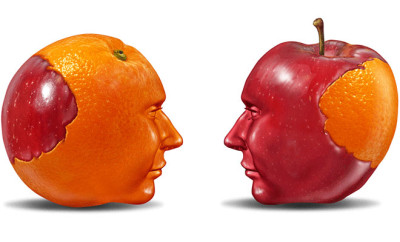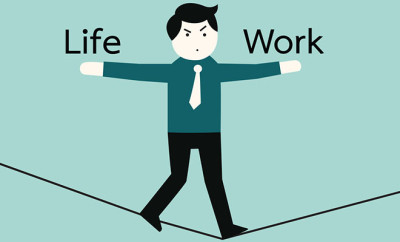
The Magic of Focus Power
“Focus is the quintessential component of superior performance in every activity, no matter what the level of skill or the age of the performer.”
Timothy Gallwey, The Inner Game of Tennis
We all know that we do our best when we are focused.
Isn’t that true for you? Whether you are writing a report, doing customer service, playing a game, marketing a new product, watching a movie, or reading a book—don’t you perform best when you are effectively focused on what you are doing, so that you are completely present? Don’t you enjoy the experience more? Don’t you remember things more thoroughly? No wonder Gallwey says, “Focus is the quintessential component of superior performance in every activity…” Focus improves the quality of our mind, learning, enjoyment, and so much more.
Compare focus to distraction.
What happens every time we lose focus? The answer is spooky. Suddenly, we are not all there! Sometimes this can be funny when our absentmindedness makes us walk, talk, and act like a slapstick comedian. Sometimes it is tragic, as when we lose focus driving and then lose control of the car. When we lose focus, we make more mistakes in our performance, understanding, and learning. Isn’t that true for you?
Attending to whatever we are engaged, in is one of the essential variables that make a critical difference in almost everything. Attention is critical for learning, comprehension, and creativity. It’s critical for being productive and efficient.
» So what’s the problem?
» What causes the loss of attention, the lack of focus, the distractedness of mind that prevents us from honing in on a subject and staying with it?
Distractions
There are several things that can trigger the loss of focus. Recognising them is the first step in addressing them.
1) We lose focus when we are distracted.
Even when our focus is very intense and riveted to something, other things can still enter into our awareness and “grab our attention.” This is good. It is really a survival mechanism that prevents life and death emergency situations from occurring without us responding. Of course, the problem becomes when we let every little noise, movement, and image enter into our engagement as if it were an emergency. This explains why the more we have on our mind, the less we’re able to focus. Focus requires a quiet and calm mind. The more turbulent and distressed our mind, the less our focus.
2) We easily lose focus when our interest and/or desire is weak.
What drives focus? Interest, desire, and a sense of choice. The more we choose what to attend, the greater our focus. We are more apt to “pay attention” if it is an attention that we choose. And if we are interested in the object of our attention, the better. The more we “put ourselves into something” (the meaning of interest) the stronger grows our focus. So with desire, desire powerfully drives focus. We find it easy to focus and stay focussed when we’re doing something that we have chosen to do.
Focus results when we align our truest desires and highest intentions with our actions. When we do this, focus is easy. It then spontaneously arises.
3) We lose focus when we are stressed or caught up in negative emotions.
We focus best when we’re calm, relaxed, or moderately excited. Perhaps this is the smooth easiness of focus. When the emotional intensity becomes stronger, focus becomes harder to maintain. And when we experience strong negative emotions – stress, frustration, anger, fear, focus – becomes almost impossible to maintain except for moments. The more on our mind, the more easily we are distracted (the first factor in the loss of focus).
4) We lose focus when we’re not in a physically resourceful or balanced state.
Just as focus evaporates with negative emotions, it evaporates with ill-health, fatigue, disease, and anything else that puts the body into an unresourceful state. When the body is not at ease, comfortable, and vigorously alive, it distracts and interrupts us from our focus. Pains and problems intrude to grab our attention.
5) We lose focus through conflicting motivations and intentions.
Just as having too many things on our mind can weaken focus, so can having different motivations and intentions. We feel inwardly torn between this motivation and against that agenda when this happens. Focus shifts from this agenda then to that one.
Focus Checklist
| Loss of Focus | Strong Focus |
| » Lots of Distractions | » Few or no Distractions |
| » Low Interest | » High Interest |
| » Loss Desire / Passion | » High Desire / Passion |
| » Lots of Stresses | » Relaxed, Calm |
| » Lots of Negative Emotions | » Low or no Negative Emotions |
| » Ill Health, physically out of sorts | » Physically feeling good |
| » Conflicting Motivations | » Single Aligned intention |
The Magic of Focus Power
When we are fully engaged with something so that our focus of attention is strong, riveting and sustained, it feels good and is magical. We experience an economy of effort. Every thought, emotion and action seems smooth and elegant. Our actions flow as if in an effortless fashion. We’re “in the one.” We are in flow.
Casting a Spell for Focus-Power
What is the spell that needs to be cast upon us so that we enter into the magical state of focus power? What are the component elements that make up this empowering state? In Neuro- Semantics we call this laser-beam focus state a genius state. That’s because being all there with our resources and showing up so that we are fully present enables us to act with more congruence, alignment, and engagement.
1) Sensory awareness in the moment.
Being in sensory awareness means being fully present with our mind and body. It means seeing and seeing, hearing and feeling. While that may sound easy, it is not. While almost any child can do this, most adults cannot. Most adults have lost this ability, or only retain it minimally. Why? Because we can so easily move up the levels of the mind and get lost in the ozone of abstractions. When that happens, our mind gets in the way—our concepts, beliefs, understandings, etc. When this happens, we can no longer see the world innocently. We see the world as coloured by our concepts and beliefs. The solution is to “lose our mind and come back to our senses.”
Via sensory awareness, we are able to see and hear and feel afresh. We are able to just be aware and observe what is. This is a rare gift.
2) Running our own brain.
It’s hard, if not impossible to focus if you are not in charge of running your own brain. Do you have that option open to you? Is that a choice you can choose? Of course, to run your own brain, you have to know how to run it. To move to the place where we truly have choice in our life we have to have the ability. Without the power to choose, there is no choice. And choice means that we have multiple options. To only have one option is to have no choice. When we have two options, we have a dilemma, this or that. It is only through having a multiple choice list of options that we have choice.
3) Clarity of what we value as important.
Focus also emerges from clarity of priorities. If we do not have a clear vision of what’s important or choice of our priorities, we will not have a focus of attention. What’s important to us? Why is that important? What do we get from that? What do we understand about that? Focus weakens at the rate and degree that our clarity of purpose becomes less and less clear, more confused and ambiguous.
4) Trust of ourselves and the focusing experience.
The spell for focus must include self-trust. That’s because it is self-doubt that distracts. It is self-fear, self-contempt, self-worry. For us to focus on one thing and give our full attention to it, we need to believe in ourselves, and trust our ability to learn, decide, and choose. Anything less weakens focus. When we release ourselves to that which we’re engaged in and let go to the experience of focused engagement—we experience the flow state of top athletes in the zone. Then the magic happens.
5) Resilience in returning to focus.
In focusing, our aim is not to create a focus and never lose it. Focus ebbs and flows as the stream of our consciousness moves and flows. Our aim is to more quickly return to our engagement when we lose focus. Losing focus is just part of the way “mind” works; returning to focus means we’re able to catch ourselves and re-evoke the focused state.
6) Challenged to sally out from one’s safety zone.
Czikszentmihalyi postulated that the flow state operates between the extremes of challenge and safety. With too much safety we feel bored; with too much challenge we are overwhelmed and so feel anxiety. When we have a balance so that we have enough challenge to our skills to be drawn and attracted, we move into “the flow channel” that’s just right for optimal engagement and learning. This keeps the excitement up without threatening the basic security.
Focus fades with the negative emotions of anxiety, insecurity, and demandingness, as it does with boredom. In boredom, our focus weakens until we fall asleep – alertness fades.
7) Practising the skill of focusing.
Focus is a skill and as such, is learnable. The nice thing about learning how to “pay” attention is that as we learn to focus and then come back to our focus and ignore distractions and let follow our interest, we become more skilled at it. Doing so necessitates becoming meta-aware of our focus, so that we notice where our attention goes, what grabs it, how strongly it is grabbed, and what we can do to keep returning to our focus. What are the key variables in your awareness that supports a more intense focus? When thought balls pop into the court of your consciousness, just notice them and decide—decide what you most want.
8) An energetic sense of decisiveness.
It takes a decision to focus our attention on an event, person, or idea. And it takes a decisive state of clarity about intention, understanding and purpose to say Yes to our attention and No to everything that would interfere, interrupt or distract from that intention. Decisiveness is the state that drives focus. Indecision weakens focus and nurtures inattention and distractive attention.
In practising focus, most physical acts (i.e., exercise, gardening, hobbies), because they are willed, give us a way to develop our intentional capacity. William James suggested the practice of “the useless exercise” for those who want to strengthen their will power.
“Keep alive in yourself the faculty of making efforts by little useless exercises every day. Be systematically heroic every day in little unnecessary things; do something every day for no other reason than its difficulty; so that, when the hour of dire need draws nigh, it may find you not unnerved and untrained to stand the test. … The man who has daily inured himself to habits of concentration, attention, energetic volition and self denial in unnecessary things will stand like a tower when everything rocks around him and his softer fellow mortals are winnowed like chaff in the blast.”(From Personality and Personal Growth, James Fadiman)







